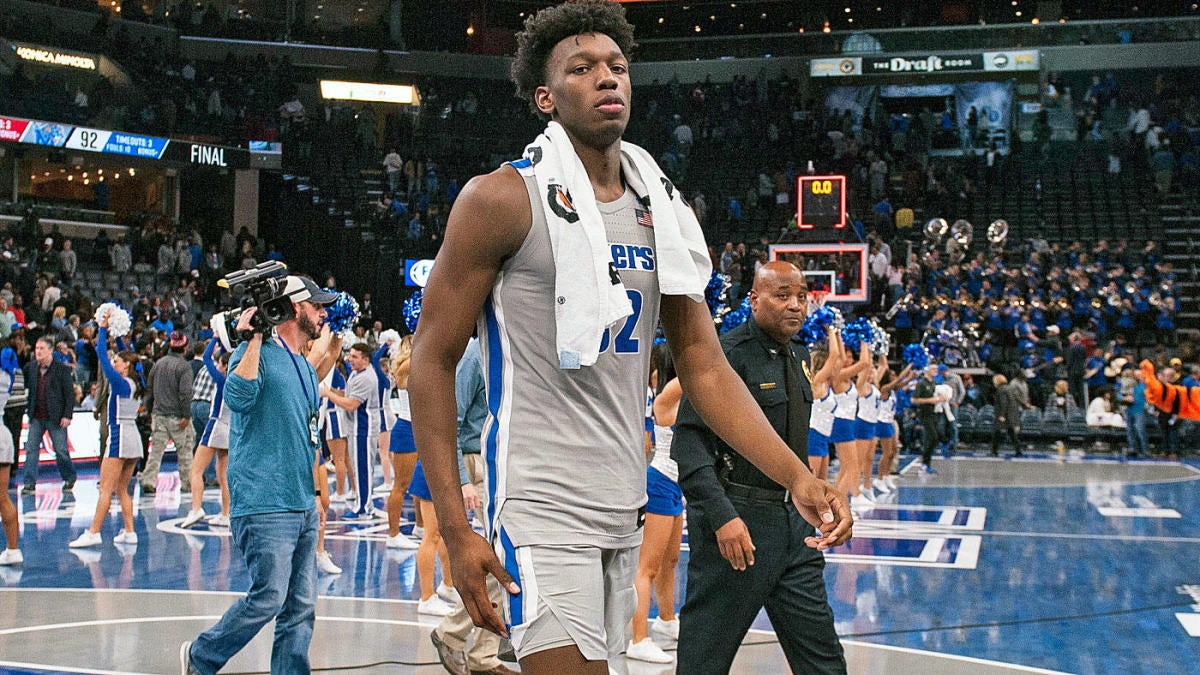
It is, undeniably, a complex story -- so complex that it led thousands of people to spend their Friday night expressing strong opinions on social media without a good grasp of NCAA rules and how they're applied. But the simplest version of the big James Wiseman development is this: Years before Penny Hardaway was the Memphis coach, he was a Memphis booster whom the NCAA has determined provided James Wiseman's family with approximately $11,500 to help them move from Nashville to Memphis so that the 5-star prospect could finish his prep career at East High, where Hardaway coached at the time.
And that's a pretty clear impermissible benefit.
In fact, it would be a pretty clear impermissible benefit, according to NCAA rules, almost regardless of whom provided the money, or for what reason, or wherever Wiseman eventually enrolled. That the money came from the man who is now known as one of the best recruiters in the sport, and who currently coaches Wiseman at Memphis, just makes the story juicer. But a prospective student-athlete's family accepting approximately $11,500 from Hardaway -- which even Memphis acknowledged Friday is exactly what happened -- or anybody like Hardaway is an obvious NCAA issue. That's the main thing to remember here.
Does it stink?
Of course it stinks.
Wiseman is the No. 1 NBA prospect in college basketball, the star of a recruiting class built to lead Memphis to the NCAA Tournament for the first time since 2014. And now he's ensnared in a high-profile NCAA case because of something that happened that he probably personally had nothing to do with. And though this has been twisted in some circles into a story about how Hardaway paid Wiseman's family to get him to enroll at Memphis, that's not really true at all. What Hardaway did is pay Wiseman's family in advance of Wiseman enrolling at East High. And then, when Hardaway got the Memphis job after Tubby Smith was fired following his second year, Wiseman simply followed his high school coach to college.
That's important when it comes to framing the story.
But it's likely far less important when it comes to determining whether Wiseman should or should not be allowed to play college basketball because, again, even the agreed-upon facts of the case are problematic. Can Memphis make a compelling counter-argument? Perhaps. And let the record show I wouldn't completely rule anything out with attorney Leslie Ballin involved. He once helped a woman beat a murder charge after she shot her preacher husband in the back, after all. So maybe the NCAA will be light work.
I'm skeptical, though.
Truth is, regardless of whether Hardaway ever planned on coaching at Memphis or any other college, or if Wiseman ever planned on playing for Hardaway at Memphis or any other college, once Hardaway provided approximately $11,500 to Wiseman's family, Wiseman was at risk of being punished by the NCAA.
Again, that's an impermissible benefit.
Just like Brian Bowen's father should've known better than to accept an impermissible benefit from somebody who worked for an apparel company, James Wiseman's mother should've known better than to accept an impermissible benefit from somebody who was, at the time, a grassroots coach. Bowen paid for his father's NCAA sin. Now Wiseman might -- I repeat, might -- have to pay for his mother's NCAA sin.
And, yes, I agree, the NCAA rules suck.
I've been writing about them, and screaming about them, for years and years and years. Put me in charge, and we'd change them all tomorrow, and none of this would be an issue. So if you think you hate the NCAA's current rules, just know that I hate them more. But, unfortunately for Memphis and Wiseman, bad rules are still rules just like bad laws are still laws. You have to follow them or else. So here we are.
As for what's next, man, who knows?
Memphis officials are obviously digging in -- convinced they're being unfairly targeted by the NCAA in ways that schools such as Duke and Kentucky are not. Geoff Calkins, a columnist at The Daily Memphian, wrote late Friday that one possible defense could be that Hardaway has helped dozens, if not hundreds, of families over the years -- both families of athletes and non-athletes. So if North Carolina can beat an NCAA case by arguing, in part, that its fraudulent classes weren't impermissible benefits because they were available to both athletes and non-athletes, perhaps Memphis can argue Hardaway's money isn't an impermissible benefit because it was also available to both athletes and non-athletes.
To that, I'd say, good luck.
But, either way, Memphis will fight. The school, and Wiseman, made that clear on Friday. If it comes at a cost, then it comes at a cost -- and the cost could be significant. But, make no mistake, Memphis will fight.
https://www.cbssports.com/college-basketball/news/like-it-or-not-a-major-ncaa-rule-appears-to-have-been-broken-in-james-wiseman-case-but-memphis-will-fight/
2019-11-09 07:16:00Z
52780430849398
Tidak ada komentar:
Posting Komentar